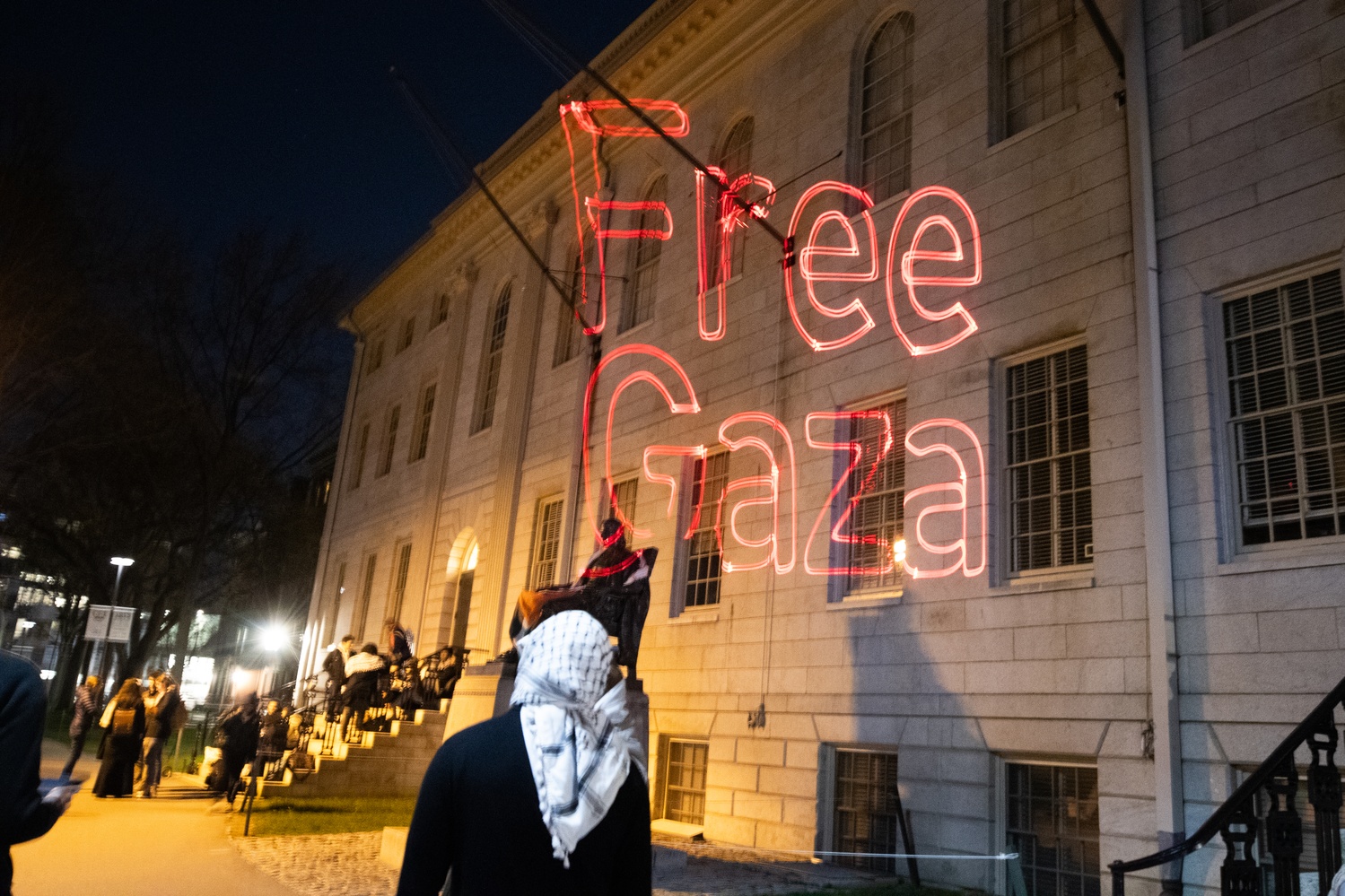
News
When Professors Speak Out, Some Students Stay Quiet. Can Harvard Keep Everyone Talking?

News
Allston Residents, Elected Officials Ask for More Benefits from Harvard’s 10-Year Plan

News
Nobel Laureate Claudia Goldin Warns of Federal Data Misuse at IOP Forum

News
Woman Rescued from Freezing Charles River, Transported to Hospital with Serious Injuries

News
Harvard Researchers Develop New Technology to Map Neural Connections
Will You Monitor Us, Harvard?
Since coming to Harvard, I have never been to a protest. For international students like myself, to protest is to risk suspension — and, in turn, deportation.
Trump’s recent executive order does not change that.
Born and raised in Mexico City, I have witnessed the power of protest and civil disobedience to mobilize society — demanding justice for missing students in 2014, opposing femicides and gender-based violence in 2020, and resisting Mexican judicial reform in 2024.
I also stand in solidarity with the people of Palestine. Witnessing “the first live-streamed genocide in history,” to quote Palestinian novelist Susan Abulhawa, I have grown frustrated at Harvard’s continued investments in companies tied to weapons manufacturing and Israeli settlements.
Nestled within Trump’s order lies an instruction for government agencies to familiarize universities with “the grounds for inadmissibility” under which an international student could face deportation. This familiarization, the order suggests, would request higher education institutions surveil international students and report them for suspected antisemitism.
The executive order barely articulates any novelties. International students who break the law have long faced the risk of deportation. Similarly, under certain circumstances, higher education institutions have long been required to report information about F-1 visa holders, the majority of international college students.
What is novel about the order, then, is its very articulation: How it devotes an entire subsection to international students and threatens to deport those engaging in unlawful antisemitic harassment.
Without concretely defining what is meant by such harassment, the executive order leaves ample room for interpretation. In an environment where criticism of Israel has already been conflated with antisemitism — as evidenced by Harvard’s controversial adoption of the International Holocaust Remembrance Alliance’s working definition — this lack of clarity risks suppressing legitimate political speech.
Now, it is evident that antisemitism is a serious problem. Jewish students across campuses in the United States, including Harvard, continue to voice the growing estrangement they face today. Equally evident is the fact that any person who conscientiously breaks the law — American or international, student or otherwise — should expect to face the legal consequences of their actions.
What is not evident to me, therefore, is why the executive order singles out international students as uniquely subject to surveillance and repercussions. Why emphasize the implications for a group that, as of 2023, only constitutes 5.6 percent of college students in the United States?
Perhaps the answer lies in history. Just like “the charge of antisemitism is being used to dispossess the Palestinian people of their last resource of land,” as Israeli poet Yitzhak Laor wrote in a letter to the London Review of Books in 2003, so too are accusations of antisemitism today being weaponized against foreigners in America.
The executive order’s unique fixation on monitoring international students sets a dangerous precedent. If universities like Harvard are to uncritically comply with vague mandates to monitor us, they risk legitimizing a broader culture of surveillance — one that fosters xenophobia against international students, all while normalizing the policing of political expression on campus.
In light of this, Harvard now faces a question: Will it allow fear to dictate its values, acquiescing to external pressures and risking the safety of its student body? Or will it reject any role in facilitating political repression, affirming its commitment to free expression?
Upholding the latter will require an explicit refusal to surveil internationals — a reaffirmation of Harvard’s commitment to uplift all of its students.
At stake is more than just the ability of international students to engage in protest — it’s the very integrity of academic freedom. To remain a place where ideas can be debated without fear of retribution, Harvard must take an unequivocal stance.
Like many, I am an international student who stands in solidarity with Palestine. So once again, I ask you, Harvard: Will you monitor us? Or will you stand up for the principles you claim to uphold?
Andrés Muedano ’27, a Crimson Editorial editor, is a Social Studies concentrator in Adams House.
Want to keep up with breaking news? Subscribe to our email newsletter.

